MANAGEMENT IS CLASSIFIED AS A PROFESSIONAL DISCIPLINE BUT WHY?
The nature of professionalism is reviewed and the argument made that records management can be classified as a professional discipline. Significant elements of a profession, such as university education, professional associations, and professional literature, have developed in records management.
Further professionalization of the discipline has gained momentum with the development of electronic records, which have given rise to a new and distinct body of theory and knowledge and also triggered research activities. These developments permit records management to establish itself not only as a recognized profession, but also as a scholarly discipline.
Records management was first identified and acknowledged as a distinct occupation in the early 19th century.(1) This activity arose in response to the growing amount of information and documents produced, used, and stored in organizations (both public and private). The need to control the production, storage, and disposition of records (i.e., documents received or created by an organization in the course of its business and retained by that organization as evidence of its activities, processes, and transactions) had become increasingly important throughout the 19th and 20th centuries. An ever-increasing volume of records has been a direct consequence of the information explosion.
New information technologies (e.g., photocopiers, personal computers, the Internet) have added new dimensions to the problem of controlling records effectively and efficiently. Their use, ironically, has resulted in a dramatic growth in paper-based documents.
For a long time, records management in terms of organizational structure was a handmaiden of archives administration (Hare 1996). Only the shift from an emphasis on document preservation to that of document creation and its life cycle construct allowed for the emancipation of the profession.
The establishment of the National Archives of the United States in 1934 and the development of the life cycle concept are two forces which resulted in records management moving “from being a series of sporadic and unrelated efforts to an organized, structured, and logically based approach to creating, maintaining, and disposing of recorded information.” (Penn, Pennix, and Coulson 1994)
What, then, makes records management a profession? What characteristics distinguish it from other occupations that do not enjoy this status? This article will demonstrate that records management fits the definition of a profession, and that indeed it is moving a step beyond – toward becoming a scholarly discipline.
Definition of a Profession
There are many definitions of profession, professional, or a process of professionalization. An effective definition comes from Millerson, who describes a profession as “a type of high-grade, non-manual occupation, with both objectively and subjectively recognized occupational status, possessing a well-defined area of study or concern and providing a definite service, after advanced training and education.” (Millerson 1964)
To further qualify this definition, it is useful to look at Greenwood’s list of characteristics that define a profession: systematic theory, autonomy, community sanction, ethical codes and a culture (Greenwood 1966). Strauss, on the other hand, argues that there are four values associated with professionalism: expertise, autonomy, commitment, and responsibility (Strauss 1963). Cox identifies five characteristics of an archival profession: specialized knowledge or theory, community sanction, professional cohesion, culture, and institutionalized altruism (Cox 1994). Abbott defines a fully formed profession as an organized body of experts who apply some particular form of esoteric knowledge to particular cases (Abbott 1988).
Established professions have systems of instruction and training together with entry by examination and other formal prerequisites. They are believed to possess and enforce some kind of code of ethics or rules of behavior. They are also thought to rely on fees for services. These various definitions are, in fact, closely linked and comprise the same fundamental principles of what constitutes a profession.
Most definitions of a profession focus on theory-based education as opposed to on-the-job training, existence of professional bodies responsible for regulating a profession, and a service orientation among the practitioners. Even though in the case of records management, some of the characteristics of a full profession(2) have not yet developed, the existence of others, such as professional education and training, professional organizations, professional literature, and codes of ethics(3) are sufficient to accord it the elevated status of a profession.(4)
Abbott argues that changes in technology provide most new professional tasks. He gives an example of engineering which “arose out of increasingly technical quality of machinery and physical structure. Civil engineers designed fortifications and siege machinery, bridges and canals… As these problems became more technical and more complex, the requisite education increased correspondingly, and civil engineering achieved professional status by late 18th century in France. Mechanical engineers were a later artisan group, which was transformed into a professional one as manufacture became more and more complicated.” (Abbott 1988)
Similarly, significant changes to the increasingly complex body of knowledge and expertise required to handle records in electronic systems may bring about – if the chance is seized by records managers – this element of specialized, esoteric, and exclusive knowledge mentioned in many traditional definitions of a full profession.
Professional Education
A prerequisite to becoming a professional is an education to degree level. We cannot conceive of seeking advice from a physician or an attorney who did not complete several years of university training. We would not entrust our children’s education to teachers who had not completed their required course of study. As Greenwood writes: “Because understanding of theory is so important to professional skill, preparation for a profession must be an intellectual as well as practical experience. On-the-job training through apprenticeship, which suffices for non-professional occupations, becomes inadequate for a profession. Orientation in theory can be achieved best through formal education in an academic setting.” (Greenwood 1966)
Until quite recently in the United Kingdom, there were no degree programs exclusively dedicated to educating records managers. One could not receive a university degree in records management. Individuals wishing to pursue a career in records management had to enroll in programs designed for archivists, librarians, or information scientists; records management classes were offered solely as electives. Therefore, most of their skills and knowledge had to be acquired on the job. As valuable as such knowledge is, it did not provide intellectual rigor or theoretical basis for records management to develop into a truly professional activity or a scholarly discipline.
On-the-job training can teach practical skills but almost always fails to provide theoretical background that underpins knowledge and understanding. Knowledge of how things are done in one place may lack portability. This deficiency limits one’s understanding of the processes and principles, and therefore hinders ability to innovate and develop them. Developments in graduate education for records managers in North America are described by Walters (Walters 1995).
Even if we argue that in paper-based systems, records management did not require theory but only a set of principles or techniques, we have to admit that the complexity of electronic records management brought about both new theoretical and practical issues to be addressed.(5) Formal education became the only effective means of providing records managers with new skills to operate in this environment.
Cox says of education for archivists dealing with electronic records: “the only effective means by which to educate electronic records archivists would be to have students first complete a comprehensive archival education program…and then take an additional year for study in electronic information technology, recordkeeping and information systems.” (Cox 1995)
If records managers want to participate in new developments in electronic document management, the same strict educational and training requirements should be implemented for them.
Taking a broader approach, Walters argues that “the individual information professions (including records management) need their own degrees based upon the distinct nature of their theoretical bases.” (Walters 1995)
Realizing this need, three universities in the United Kingdom now offer courses leading to master’s degrees in records management. These are University College London (offering a master’s in archives and records management), the University of Liverpool (currently offering a master of archives and records management and, from 1999, an MBA in records management), and the University of Northumbria at Newcastle (offering a master’s in information and records management and in records management by distance learning). University College London also offers a doctoral program in records management, thus demonstrating the fact that records management is becoming, in addition to its professional role, a scholarly activity. Several institutions of higher learning, professional associations and private organizations offer diplomas, short courses, or certificates in records management. For instance, TPFL, an international information services company, began delivering professional training courses in records management as early as 1985.
To address the educational needs of practicing records managers, the University of Northumbria at Newcastle has developed a distance education master’s course in records management. The University of Wales, Aberystwyth plans to launch a new degree program in records management (in both full-time and distance learning modes) in 1999. For those who prefer – or need – qualifications alternative to degrees from universities, there are national vocational qualifications in records management (Dakers and Hare 1996).
Formally recognized professional education (by means of a higher degree) is an important element in establishing an occupation as a profession. It also allows that profession to develop and nourish its scholarly base. University education provides students with much more than practical “how-to-do-it” knowledge – it is designed to underpin this knowledge with a theoretical basis (why it is done) and provoke critical inquiries into the nature of the discipline. Furthermore, a profession strives to take control over the training process through the process of accreditation and by developing competency standards.
Professional Bodies
Carr-Saunders and Wilson (Carr-Saunders and Wilson 1933) wrote that “a profession can be only said to exist when there are bonds between the practitioners, and those bonds can take but one state, that of formal association.” They added that historically, professional organizations took upon themselves functions relating to the competence and honor of their members, protection of material interests and public activities as well as study functions (Carr-Saunders and Wilson 1933). These functions, defined over 50 years ago, are still very much alive.
As Cox wrote, addressing both the issue of the importance of professional associations as well as the need for their exclusive nature:
The sense of belonging and the association’s capacity of affecting change and representing all its members can only occur if we understand the members of our profession to be those that possess good educational backgrounds, have mastered the essential professional knowledge, are keeping up with the expanding professional knowledge, and who use that knowledge in an appropriate fashion to preserve and manage archival records (Cox 1996).
ARMA International in the United States acts as a professional association for records managers (see http://www.arma.org). It currently has more than 10,300 members from the United States, Canada, and 36 other countries. ARMA’s mission is to
* advance records and information management as a discipline and a profession
* organize and promote programs of research, education, training, and networking in the profession of records and information management
* support the enhancement of professionalism of the members of ARMA
* promote cooperative endeavors with related professional groups
In Australia, the Records Management Association of Australia (RMAA) is some 2,000 members strong (see http://www.rmaa.com.au). Founded in 1969 and incorporated in 1975, it took responsibility for developing workable standards and practices for managing records. It assists individuals and organizations involved in records management and oversees the development of records management education. The main association’s objectives are to
* promote effectively records management and the Records Management Association of Australia
* provide quality services equitably to all clients
* implement a competitive pricing structure
* allocate resources to marketing activities
* assist members with their professional development
* enhance the effective and efficient communications between federal and branch communications
* maintain and develop further industry and professional standards and guidelines for the management of records
* develop policies and maintain an advocacy role on records management issues
Other organizations representing the interests of records managers and advocating the profession are the National Association of Government Archives and Records Administrators, which represent the interests of American and Canadian government archivists and records managers (see http://www.nagara.org), and the International Records Management Federation (IRMF), founded in 1970 to “promote and advance the profession through education, research and study; disseminate professional knowledge, techniques and information…and develop and maintain an international forum for communication and education.” (International Records Management Journal 1996)
In the United Kingdom, the Records Management Society takes on some functions of a professional association (e.g., advocating records management and publishing professional literature), but it also strives to act as a voice for all those working in records management, regardless of their formal qualifications, and focuses very much on the training needs of practitioners (see http://www.rms-gb.org.uk).
Other professional functions (e.g., accreditation of degree programs, professional publications, register of members) are carried out by the Society of Archivists through its Records Management Group founded in July 1977. The Society of Archivists also offers a diploma in archive administration, a distance learning program aimed at practicing archivists and records managers who are members of the society.
Other organizations promoting records management as a profession in the United Kingdom and abroad are the International Records Management Trust, founded in 1989 with the aim of empowering records managers in developing countries to deliver effective information services (see http://www.comnet.mt:800/irmt/about.html), and the Association of Commonwealth Archivists and Records Managers established in 1984 (see http://www.comnet.mt/acarm). The latter organization is primarily concerned with improving the quality of records management in the Commonwealth countries and, like the Records Management Society, is open to all records management practitioners. The Institute of Information Scientists and the Library Association have records management professionals among their members. The records-related role of the latter two organizations may become even greater when, as Lawes points out, all information functions within organizations begin to merge, when information management is perceived in its totality, and the distinction between external and internal information blurs even further (Lawes 1995).
(These two organizations, in recognition of disappearing differences between various information professions, are currently conducting merger talks. See http://www.iis.org.uk)
Professional Literature
One of the key elements in every definition of a professional is a continuous need to develop and improve knowledge and skills. Professional literature can be very useful in the quest for further knowledge and professional development. It can also act as the voice of a profession advocating its rights and responsibilities as well as a forum for professional discussion.
Currently, only a handful of English language journals are dedicated exclusively to records management: Records Management Journal (published by Aslib), The Information Management Journal (formerly Records Management Quarterly) published by ARMA International, Records Management Bulletin (published by the Records Management Society), Informaa Quarterly published by RMAA, and International Records Management Journal (published by IRMF). The Society of Archivists’ Records Management Group also publishes in the area. All these publications play an important role in the life of the profession, and some of them also have an ambition to become tools of scholarly communication. Records Management Journal and The Information Management Journal follow established editorial practices of scholarly journals, are refereed, and seek materials dealing with research in the area of records management. Unfortunately, for the moment, they are not indexed in Social Sciences Citation Index or Arts&Humanities Citation Index, indices traditionally including journals with an established reputation for the high merit of their scholarly contents.(8)
Many articles focusing on records management are published in a wide range of journals, usually in the areas of information management, librarianship, archival studies, and business and computing (i.e., Managing Information, Archives and Museum Informatics, Aslib Proceedings, Journal of Documentation, Journal of Information Science, and Information Management and Technology).
There are also many books published in the field of records management. The Library of Congress catalogue lists 411 titles published after 1973 with broad subject headings of “Public records – Management” or “Business records – Management.” The majority of these books deal with practical issues of records management (the “how-to” approach) or are textbooks for students and practitioners.
Modern technology has moved professional and scholarly communication into new planes. Electronic mail, online discussion lists, and electronic publishing have enriched communication greatly. Records management professionals take full advantage of these new developments and participate in various discussion lists and newsgroups (e.g., rimip and archives-nra in the United Kingdom or erces-l, nara.announcements and misc.business.records in the United States). Related listservs based in the United States include recmgmt@listserv.syr.edu, km@mccmedia.com, and aarchives@listserve.muohio.edu.
Many reports, policy statements, and discussion pieces are also published on the Internet, adding to the speed of communication and widening the potential audience. Professional organizations use the Internet (e.g., home pages) to communicate with members and the general public.
From Professionalism to Scholarship
Professionalism and scholarship are mutually inclusive; one could not exist without the other. Professional activities have to be backed by solid scholarly research. Conversely, many scholarly activities would not take place if not for their expected future practical applications.
Carr-Saunders and Wilson wrote about the connection between science(9) and professionalism. (They use the broad definition of the term “science:” ” the word science is here used, not in its unfortunate restriction to the natural or mathematical sciences, but in its comprehensives in which it includes the Arts.”) They claim that “the professional man [sic] is in touch with the world of science and its latest developments…and he carries out his work in the world of affairs. He is or might be a mediator between the world of pure study and the world of everyday life.” They saw the role of a professional as that of one who translates the world of science and discovery into the language of the common man and to his advantage (Carr-Saunders and Wilson 1933).
Pemberton defends the need for solid theory and research in the development of records management. He criticizes practitioners’ dislike of “matters theoretical” and claims that “without theoretical foundations, there can be no meaningful research effort, and without research we have only hearsay, conjecture, anecdote, and possibly propaganda. Given sound methodology and a little patience, research can provide answers to specific problems.” (Pemberton 1990)
In common with many professional disciplines, the need for practical and theoretical research will become of paramount importance as records management matures. Records managers turn to researchers and scholars to survey current practice, to develop models and, eventually, to construct paradigms.(10) Records management is entering the stage of developing such a scholarly base. The development of electronic records management gives both practitioners and researchers in records management new impetus – the changes in the ways records are created, used, stored, and archived are unprecedented. Records managers are faced with new questions for which answers have to be found; and these can be given by carefully conducted research. It is important that records managers get involved in research activities now, to ensure that changes and developments are not forced upon them by technical solutions created by software and hardware producers, and that these solutions and all new developments take into consideration specific, real needs of managing records. They can also ensure that new possibilities created by the electronic environment are not wasted by insisting on relying on traditional methods of managing records.(11) In 1996, Daniel Atkins opened a conference on research into electronic records with these words:
The raw technology is far ahead of our principled understanding of how to use it most effectively; and our understanding of use is well ahead of our understanding of how to capture, appraise, and provide long-term access to the objects of the digital age… Grounded research and development projects, synergistically linked with other major human-centered digital library and collaboratory research projects are imperative (Atkins 1996).
Research in Records Management
A clear sign that records management is developing as a scholarly discipline is research at the doctoral level. Scanning titles of recent Ph.D. theses in the area of records management gives a fair picture of the development of the discipline. Three distinct areas of research interest emerge:
* historical perspective (see Wickramanayake 1992; Craig 1989)
* descriptive studies of current practices (see Hutchinson 1996; Cisco 1992; Galopin 1989; Moore 1988)
* research into electronic records (see Gilliland-Swetland 1995; Cox 1992)
Again, research into electronic records seems to dominate the current scene.
Scholarly pursuit in electronic records management is often driven by practical applications. It often takes a form of R&D activities funded privately by software corporations, archival and records management agencies, and carried out in commercial organizations and, increasingly, in universities. (for a discussion of such R&D projects, see Barry 1997.)
In 1991, the United States National Historical Publications and Records Commission (NHPRC) funded a working meeting on research issues in electronic records, which resulted in the formulation of 10 research questions pertaining to electronic records management. Subsequently the NHPRC funded several U.S. projects which undertook research into the issues identified (see http://www.nara.gov/nara/nhprc/ergrants.html). The most influential of these was a research project into functional requirements carried out at the University of Pittsburgh (see http://sis.pitt.edu/nrjc/pp3.html and http://www.lis.pitt.edu/~cerar). The success of that project allowed for further institutionalization of research into electronic records (e.g., the Center for Electronic Recordkeeping and Archival Research was founded at the University of Pittsburgh).
The Pittsburgh project created a theoretical framework for managing electronic records. The framework was tested in practice by projects such as the Indiana University Recordkeeping System, Building Partnerships (New York State Archives), the Philadelphia Electronic Records Initiative, and the Vermont Functional Analysis Project.
During a conference on research in electronic records (Atkins 1996), the research agenda drafted by the NHPRC five years earlier was revised. Now researchers, enriched by the experience of several years of research into electronic records, turned to emerging issues. They felt that more work was needed on models for electronic recordkeeping in a variety of environments; particularly models on methods and best practices for long-term preservation, on assessment of the costs and benefits of preserving electronic records, and on technical solutions. It was also underlined that research into electronic records management should be carried out by multidisciplinary teams and based on appropriate research techniques and methodologies. The grounded research approach was singled out as the most appropriate one for researching into electronic records (Hedstrom 1996).
A year later, a special issue of Archives and Museum Informatics published proceedings of the second Working Meeting on Electronic Records Research. Researchers from Australia, Canada, Italy, the Netherlands, and the United States reported on their newest research projects. The United Kingdom was represented at the meeting by only one research team.
In the United Kingdom, the funding of records management research still remains a problem. Because of its relative youth and modest achievements, research and funding councils are reluctant to provide significant funding for records management research.
Research councils in England, Scotland, and Wales do not recognize records management as a district research discipline. An exception here is funding provided under the Joint Information Systems Committee’s (JISC) Humanities Non-Formula Funding scheme.(12) Most research activities concerned with records and electronic records management are done on a piecemeal basis. No national agenda for electronic records management exists and no single central body is seen to lead the research efforts. The United Kingdom clearly lags behind its colleagues from the United States, Australia, and Canada.
At the Department of Information and Library Management at the University of Northumbria at Newcastle, research activities concentrate on the training needs of and provision of education for records managers. (University College London is also involved in researching into educational needs of records managers. See http://www.ucl.ac.uk/SLAIS/projects/projects.html) At the first stages of this research, a survey of training needs of practicing records managers was conducted (King 1996). Based on the findings of this survey, a model for a postgraduate distance learning program was developed and delivered (McLeod 1995).
Another strand of records management research in the department concentrates on records management practices of various groups. The first project in this strand was concerned with surveying records management practices in small and medium size enterprises (Webster, Hare, and McLeod 1999). Another project focuses on the management of records in library and information science (LIS) research projects (see http://ilm.unn.ac.uk/lisp.html). Among others, it investigates such issues as current practice, the perceived value of LIS records, responsibility for their archiving, their ownership, and the role of funding agencies in managing research records. Based on the work of Theodore Shellenberg, a U.S. archivist, a functional model of research process outputs (records) was developed.
Toward a Fully Developed Profession
A profession cannot develop without research into the nature of the discipline with which the profession is concerned. In light of developments taking place, records management is undergoing the process of professionalization by acquiring some of the characteristics of a fully developed profession:
* formal education to degree level
* existence and strengthening of professional organizations
* foundation and development of professional literature
* increased research activity supplying the discipline with new theoretical frameworks
* new knowledge to deal with issues of technological development affecting the work of organizations and effective management of their records
Research activities are important and necessary if a profession is to continue developing and maintaining its status. In the case of records management, this is indeed taking place now more than ever before.
Always Yours —- As usual — Saurabh Singh
[NOTE:
ABOUT THE AUTHOR: Berenika M. Webster, BA, MLIS, is a researcher at the School of Information Studies at the University of Northumbria at Newcastle, where she conducts research in the area of records management. She has worked in the information management field for eight years. She is a member of the U.K. Library Association. Her other research interests include scholarly communication and research policy. She recently completed her Ph.D. dissertation on the use of bibliometric tools in evaluation of social sciences. Prior to joining the department in 1998 she worked in academic libraries in the United States, Poland, and United Kingdom The author may be reached at kw@soas.ac.uk. The author wishes to thank Dr. J. Michael Pemberton for e-mail discussions on the nature of professionalism. Also thanks to Catherine Hare and Julie McLeod for commenting on early drafts of this paper. However, all omissions and errors remain the responsibility of the author.
PROFILED, COMPILED & PRESENTED BY SAURABH SINGH, a management scholar, posted this item for letting all management scholars interested in knowing that why management should be called a professional discipline. It is being clearly acknowledged that the work belongs to Ms. Berenika M. Webster, BA, MLIS and it has been posted only for academic purposes with no commercial intention. If any person is interested in using any part of this work, then the permission for same should be taken from the original copyright holder and not from the person who has posted it. The author may be reached at kw@soas.ac.uk and source of same is http:// www. a llbusiness .com/ accounting-reporting/ record-keeping/ 334473-1.html]



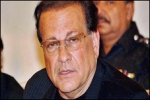
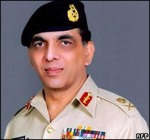
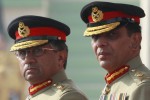
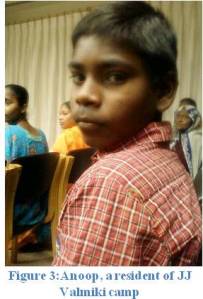


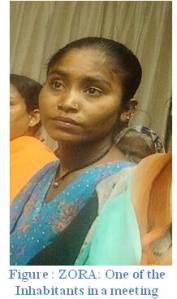
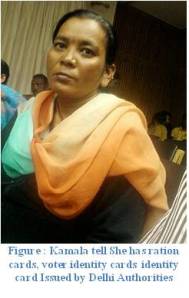
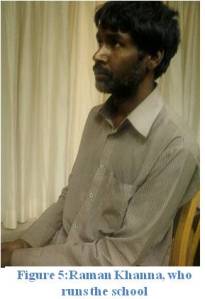
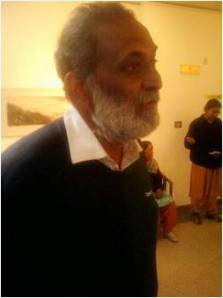








Impressions of Visitor & Few Replies